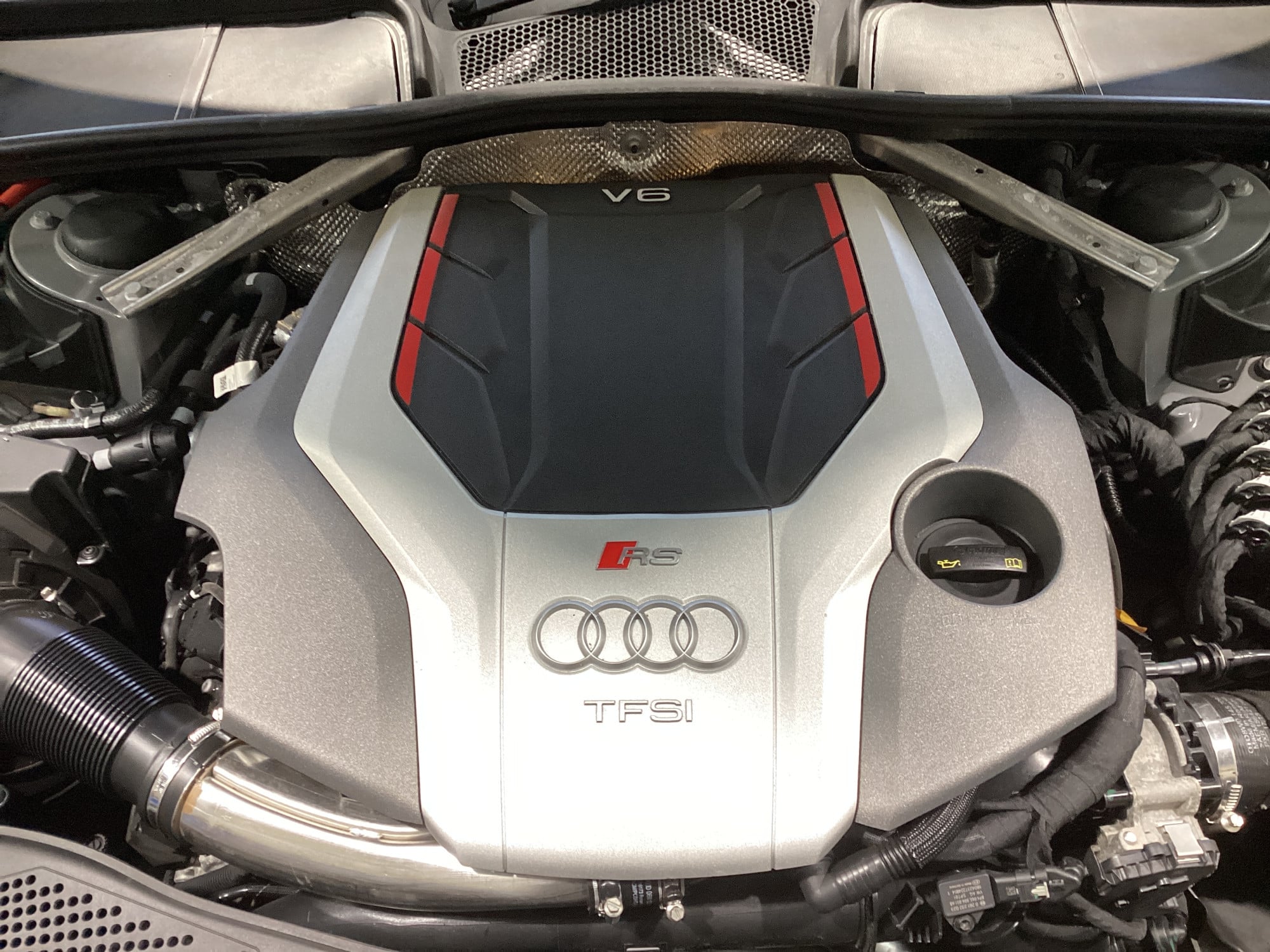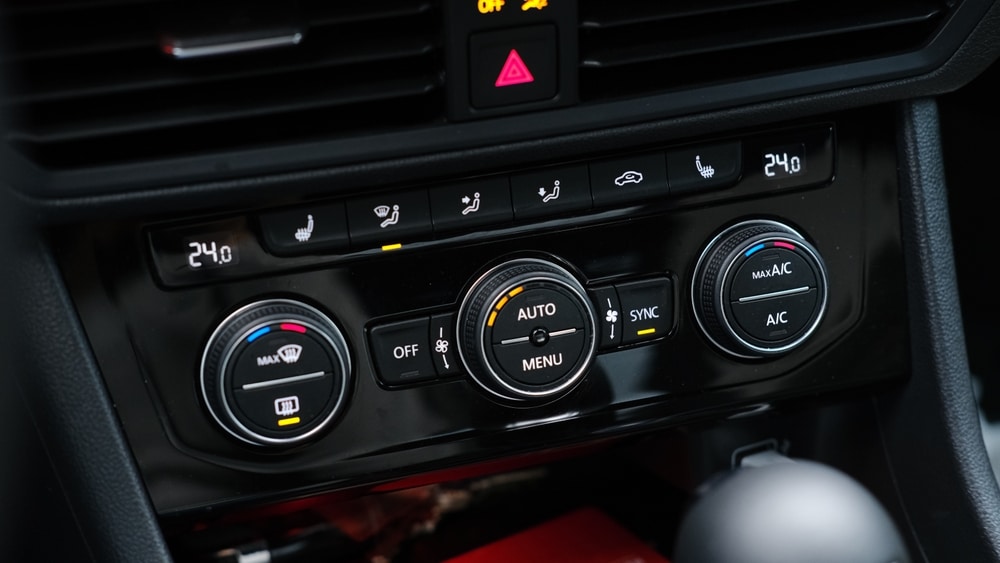Audi Brakes
Maintaining optimal brake performance is crucial for any vehicle’s safety, including your Audi. A malfunction in your braking system can significantly increase the likelihood of accidents, endangering both you and others on the road.
This is the last thing you want to happen, right?
In this guide, you’ll discover the dangers of defective brakes, common causes of brake problems and receive practical advice to extend the lifespan of your Audi’s brakes.
At Quality Car Service, our team of Audi specialists can help with all aspects of your vehicle. With decades of experience working on all Audi models, we can find any issues early before they worsen. There isn’t a problem we can’t solve.
Looking for Audi brake servicing? Allow our skilled Audi technicians at Quality Car Service to take care of your needs.
The Importance of Good Brakes: What You Need to Know!
Keeping your Audi’s brakes in optimal condition is essential to prevent severe or even fatal accidents. That’s right, FATAL. Defective brakes can create longer stopping distances, increasing your risk of accidents.
The most alarming scenario is experiencing a total brake failure while driving, which could result in losing control of your vehicle, putting you and others in danger.
Keep your Audi safe; call Quality Car Service for all your Audi brake maintenance needs.

Audi Braking System: How it Works
Understanding how your Audi’s brakes work is vital for its maintenance and to prolong your vehicle’s lifespan. Your Audi brake system is a complex assembly of hydraulic and electronic components that work together to decelerate and stop your car.
Essential elements of the Audi braking system include:
- The brake pedal,
- A master cylinder,
- Callipers,
- Brake pads,
- And discs.
Pressing your brake pedal activates a piston in the master cylinder, pushing brake fluid through the lines to the callipers. The callipers’ pistons then apply pressure to the brake pads, which in turn contact the discs or drums, effectively slowing or stopping your vehicle.
Many Audi vehicles come equipped with cutting-edge safety features such as:
- Anti-lock Braking System (ABS), which prevents the wheels from locking up during braking,
- Electronic Brakeforce Distribution (EBD), adjusting braking pressure based on the vehicle’s weight distribution,
- Electronic Stability Control (ESC), which detects and corrects skids or loss of control, further enhancing your driving safety.
Need help with your Audi brakes? Call our Audi specialists today at Quality Car Service.
Keeping Your Audi Brakes in Good Condition
Regularly checking and servicing your Audi breaks ensures their longevity and reliability. It also helps you avoid expensive repairs down the line.
When it comes to your Audi’s brakes, there are specific components that demand regular attention:
- Brake Pads: Due to the friction generated during braking, these parts wear out and may need to be replaced at intervals to maintain optimal braking performance.
- Discs or Drums: These are the surfaces that brake pads press against. Over time, they can wear out or become damaged, requiring replacement or resurfacing for proper function.
- Brake Callipers: Holding the brake pads, these apply pressure to the discs or drums. Malfunctions such as seizing or leaking brake fluid can impair braking effectiveness.
- Brake Lines and Hoses: These components are responsible for moving brake fluid and can suffer from wear or damage over time, leading to potential leaks and diminished brake pressure.
- Brake Fluid: It can degrade by absorbing moisture, affecting its performance. Regular checks and replacements according to your Audi’s maintenance schedule are advised.
- ABS Module and Sensors: These parts are crucial for your Anti-lock Braking System, preventing wheel lock-up. Sensor issues can compromise ABS functionality and need prompt attention.
Maintaining these brake system components is vital for your safety and the performance of your Audi.
What You Need to Know About Brake Health
While driving, staying vigilant for signs of brake issues is crucial. Here are common symptoms to be aware of:
- Noises While Braking: Sounds like squeaking or grinding indicate that brake pads or shoes may be worn and need replacing.
- Soft or Spongy Brake Pedal: This can signal low brake fluid levels or air in the brake lines, both of which necessitate urgent attention.
- Vehicle Pulling to One Side: This may suggest a problem with your Audi brake callipers, or you might have uneven wear of your brake components.
- Dashboard Warning Lights: Pay attention to your Audi’s warning lights for any alerts related to the brake system, such as low fluid levels or ABS issues.
- Vibration During Braking: Warped or damaged discs can cause this sensation.
- Brake Fluid Leakage: Visible leaks could indicate an issue with your Audi’s brake lines or hoses, affecting overall brake pressure. Don’t ignore this issue.
Keeping a close eye on your vehicle’s braking performance and addressing any faults early is crucial for maintaining the health of your Audi’s brakes.
For comprehensive brake care, call Quality Car Service. Let our Audi experts help you keep your brakes in peak condition.

Audi Brakes: How to Extend Their Life
Looking to maintain your Audi brakes? You can keep your brakes performing optimally while keeping costly repairs at bay by following these practical tips:
- Practice Smooth Driving: Erratic driving, such as sudden stops and rapid acceleration, can wear down brakes more quickly. By using a smoother driving style, you can extend the lifespan of your Audi brakes.
- Avoid Excessive Weight: Carrying loads heavier than your Audi is designed for can place additional strain on your brakes, leading to premature wear. Always follow your vehicle’s weight limits; you can find these in your Audi owner’s handbook.
- Regulate Brake Temperature: Excessive heat from constant braking, especially in traffic or going downhill, can deteriorate your brakes faster. You can manage their temperature with careful driving.
- Monitor Brake Fluid: Regularly check the level and condition of your brake fluid. Replace it as necessary to prevent moisture contamination that can compromise your Audi braking efficiency.
- Conduct Frequent Inspections: Keeping a close eye on your brake system, including the pads, and replacing any worn or damaged components promptly is crucial for maintaining safety and performance.
By following these simple maintenance strategies, you can enhance the durability and reliability of your Audi brakes, ensuring they work when you need them most.
Why You Should Trust an Audi Specialist to Look After Your Vehicle
Choosing Quality Car Service for your Audi’s maintenance brings several advantages:
- Audi Specialists: Our technicians are highly skilled Audi specialists, allowing for precise diagnostics and repairs on your first visit.
- Better Value: We provide dealership-quality service at better value. You save time, money and stress with us.
- Customised Service: We offer personalised servicing tailored to meet the unique needs of your vehicle, ensuring optimal performance.
- Safety Commitment: Your safety is our main concern. We ensure your Audi’s brake system is in peak condition, offering you peace of mind on the road.
- Premium Parts: We’re committed to using only the highest quality parts for your Audi; whether they are Audi branded or top-tier alternatives, your vehicle receives the quality it needs to remain like new.
In need of exceptional Audi brake servicing? Our experts at Quality Car Service can help with all your Audi braking needs.



